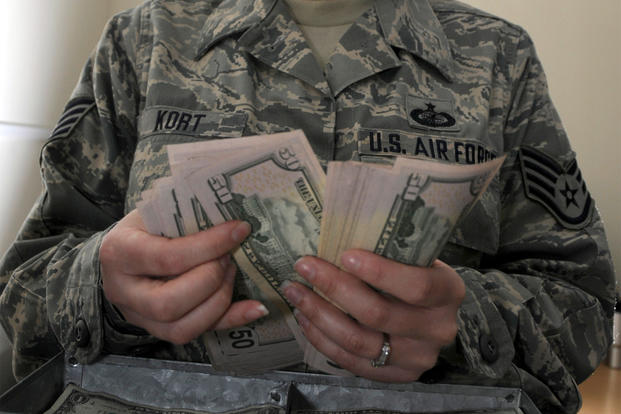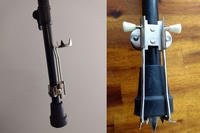Introducing Military.com's new Transition app. Our new app gives you a personalized transition plan, tells you what to expect while transitioning, and even helps you find a job. The app is customizable for all Active Duty, National Guard, Reservists, and spouses. Download it today from Google Play or iTunes.
No right-thinking person would ever claim that the financial side of military life is the land of milk and honey. Even so, there are some perks to military life that don't exist in the civilian world. If you're thinking about getting out soon, it pays to understand how your personal financial landscape will change when Uncle Sam is no longer issuing your paychecks. Let's take a close look at two areas where I think you'll see the biggest differences. No More Tax-Free Allowances If you've been in the military for any length of time, you've no doubt realized that some of your pay comes to you free of tax. Basic allowance for subsistence (BAS) and basic allowance for housing (BAH) are two of the most common sources. What you may not realize though is just how much of your hard-earned cash this tax treatment saves you. I'll use the example of an E-6 living in my ZIP code here in San Antonio to illustrate what I mean. We'll assume our service member is married, has one child, and has been serving for over 10 years. Given these facts, his taxable base pay would be just shy of $39,600 per year and his non-taxable BAS and BAH would total just over $21,300. Looked at another way, about 35% of this family's income would be free from taxes. If this BAS/BAH combo was instead taxable (as it would be as a civilian) our service member and his family could lose around $250 each month to taxes…and that's just in Federal taxes. State taxes (if applicable) could make it even more. In other words, civilian pay and military pay is not an apples-to-apples comparison so you need to plan accordingly. No More Free Health Insurance And while a couple hundred bucks a month is nothing to sneeze at, that could just be the tip of the iceberg. Your health insurance in the military is, to put it lightly, very cost effective. Granted, you occasionally might not be thrilled with how the whole system works but…you just can't get much more cost effective than free. The cost of civilian health insurance is far from free. According to a study conducted by the Kaiser Family Foundation, the average cost for employer-based insurance plans for a family of four is just over $1,300 per month. The good news on this subject (if there is any) is that most people don't have to pay that entire amount on their own. Civilian employers typically subsidize these costs so that the average monthly cost paid by the employee is about 28%, or $360 per month. Even so, there's no rule that says they have to pay anything and no guarantee that they will. Costs for healthcare can vary widely from one employer to the next, but in almost every situation there are costs! Also, it's important to know that these numbers are just the premiums employees pay for the insurance. The numbers don't include co-pays, co-insurance, or deductibles you might have to pay. According to a separate study reported in the Milliman Medical Index, the national average for these expenses for a family of four runs about $3,600 per year (or $300 per month). When you add these costs to the insurance premiums you'll have to pay, healthcare related costs can easily be one of your single biggest cash outflows each month as a civilian. And that's without adding in expenses for vision and dental care. Go In Prepared Again, these are just two of the big financial changes you'll face when you leave the military but they aren't the only ones so you'll want to have a solid game plan in place long before you separate. To help you build out your plan, I urge you to spend some time with the Separation Assessment Tool and the Separation Checklist on usaa.com. Though neither will have you splashing around in pools of milk and honey (which could be kind of gross anyway), they should help you make a better transition.










